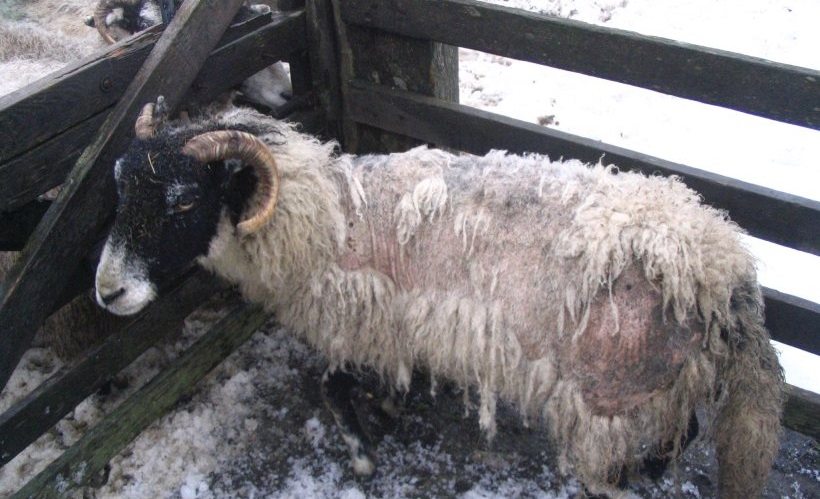
Farmers have been told to assume any incoming sheep are carrying scab mites to curb its spread after a survey of NI sheep producers revealed that movements are the leading cause of infestation.
The survey found widespread cases of scab among flocks, with 36% of farmers indicating they had at least one outbreak of sheep scab in their flock within the previous five years.
Published in August, the survey highlighted that 39% of farmers believed scab was introduced to their flock via a purchased animal.
Some farmers also reported their most recent outbreak had cost them over £2,500, although costs were variable.
Researcher and vet Paul Crawford said the results highlighted knowledge gaps that needed to be addressed to improve sheep scab control.
"The survey shows there are knowledge gaps concerning parasite biology, disease transmission, prevention and treatment options, as well as a lack of awareness of some relevant industry guidelines.
"For example, some farmers rely on clinical signs alone to rule out the possibility that newly purchased sheep are infested with sheep scab before mixing them with their flock.
"This activity poses a high risk for introducing sheep scab into previously uninfected flocks," Mr Crawford said.
The inadequacy of some farmers' quarantine rules, or their inability to follow them, was also reported by farmers as being the cause of their flock infestation.
He said adopting strict quarantine procedures for any incoming sheep and understanding the entire contamination route were vital to curb its spread.
Mr Crawford explained: "The sheep scab mite can live off sheep for 16- 17 days, so quarantine isn't just as simple as putting sheep in a separate field; it is about understanding the entire contamination route.
"This includes everything sheep come into contact with from the trailer through to fences in the yard," he explained.
When in quarantine, he recommends that animals remain there for 3-4 weeks and two weeks after arrival, blood testing 12 animals from each group using the blood ELISA test.
This would indicate whether the group of sheep had been exposed to scab and whether treatment was necessary.
When animals need treatment, the correct product must be used and the instructions must be followed, with Mr Crawford expressing his disappointment at how many poor treatments were reported in the survey.
"It highlights that there's still work to be done to remove any misunderstanding around treatments and to keep reinforcing the Sustainable Control of Parasites in Sheep (SCOPS) guidelines."
This guideline recommends treatment choice for scab, which includes plunge dipping using an organophosphate (OP) dip.
Farmers could also use an injectable group 3-ML such as CYDECTIN 2% LA, which treats scab infestations and prevents re-infestations for 60 days from a single injection.
